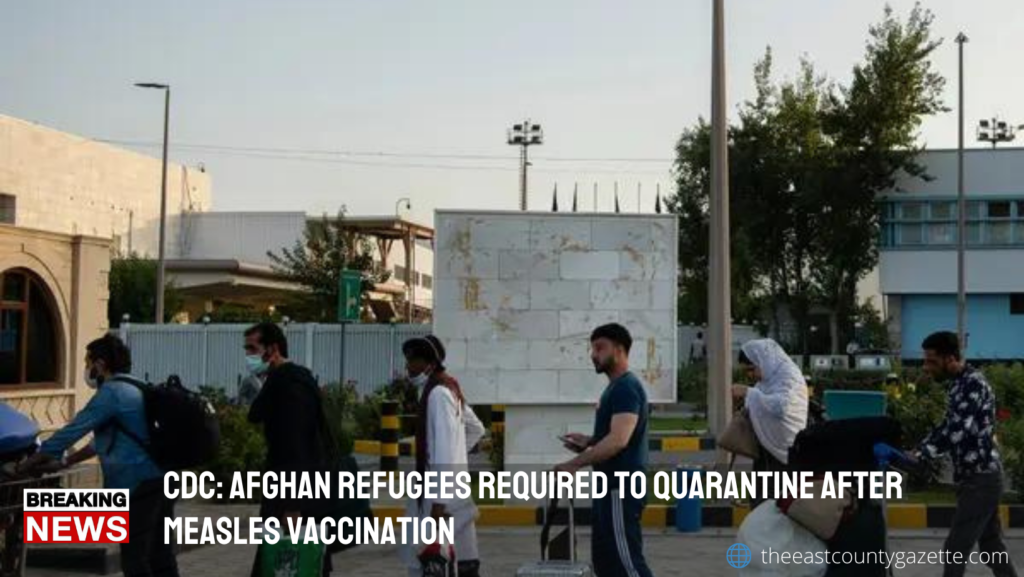The Centers for Disease Control and Prevention requires that evacuees from Afghanistan who have arrived in the United States get vaccinated against measles and quarantine for 21 days after some were found to have the highly contagious virus when they arrived in the country this month.
As of Monday, according to the CDC, there are 16 confirmed cases of measles among Afghan evacuees and Americans who fled Afghanistan in recent weeks — up from six that the White House confirmed late last week — and four cases of mumps.
Furthermore, evacuees on American military bases in the United States will have to wait three weeks after getting the MMR vaccine that protects against measles, mumps, and rubella before they can leave, this is to give the vaccine time to take effect. The CDC also recommends that evacuees in military bases overseas also quarantine; its quarantine authority does not extend to foreign soil.
Recommended Read: Afghan Families Seek Assistance from California Lawmakers
The CDC stated on Monday that some Afghan evacuees had “left bases before measles cases were identified,” prompting a mass vaccination campaign.
The new information came in a special advisory that the agency issued to doctors around the country, warning them to be on alert for cases of measles and other infectious diseases among evacuees from Afghanistan.
In addition, the advisory also said that CDC was “also aware of some cases” of tuberculosis, chickenpox, malaria, leishmaniasis, hepatitis A and Covid-19 among evacuees, warning them that they were at increased risk of gastrointestinal infections as well, including shigellosis, giardiasis, and cryptosporidiosis.
On Friday, President Biden signed an executive order that added measles to a list of communicable diseases that could require quarantines.
Measles was declared eliminated from the United States in 2000, which means the disease is no longer endemic, but travelers continue to bring it into the country, posing an ongoing risk to the unvaccinated.

